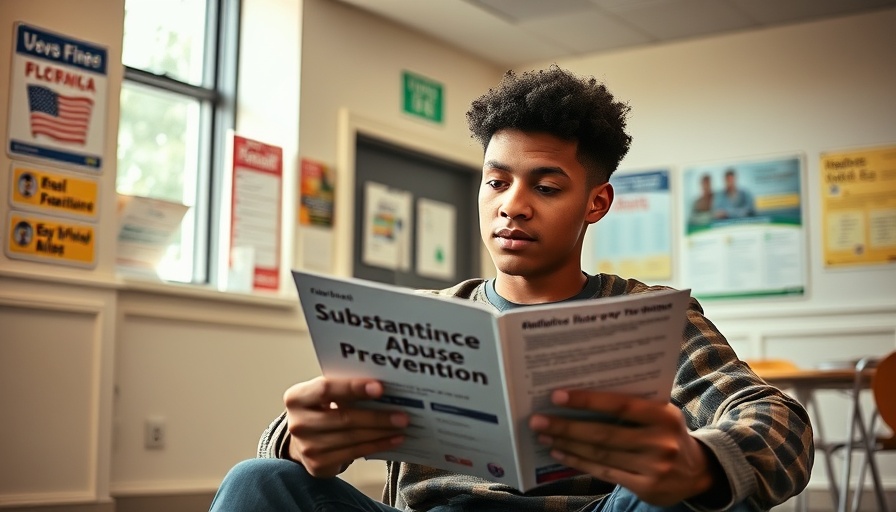
The Growing Concern of Substance Abuse Among Youth
As we navigate through an increasingly complex world, the issue of substance abuse among youth has emerged as a significant concern for families and communities. Parents are often the frontline defenders in monitoring their children's interactions with drugs and alcohol, but the landscape is ever-evolving, requiring us to stay informed and proactive. Substance abuse can lead to profound consequences, impacting not just the individual but also families and society at large.
Understanding Addiction: What Parents Need to Know
Addiction is multifaceted and can stem from various factors, including genetics, environment, and mental health. For parents, understanding these underpinnings is crucial to recognizing the signs of potential substance abuse in their children. It's important to educate oneself about the different types of substances and how they affect the brain, as well as the various methods of treatment available. The complexity of addiction often necessitates a dual diagnosis approach, particularly when mental health issues co-occur with substance abuse, underscoring the necessity of comprehensive treatment plans.
Effective Strategies for Prevention and Intervention
Implementing effective prevention strategies can significantly reduce the likelihood of substance abuse in youth. Open communication about the risks associated with drug and alcohol use, coupled with clear expectations and boundaries, can create an environment where children feel secure in discussing their experiences. Engaging in activities like sports, arts, and community service can also foster a sense of belonging and purpose, diverting attention from substances. In cases where intervention becomes necessary, seeking professional help from addiction counselors or peer support specialists can make a substantial difference in youth recovery journeys.
Exploring Treatment Options in South Africa
If substance use becomes problematic, understanding the various treatment options available is essential. In South Africa, both inpatient and outpatient rehabilitation programs are accessible, catering to diverse needs. Facilities in major cities like Johannesburg and Cape Town offer a range of services, including personalized detoxification programs and alternative therapies like mindfulness and yoga that have shown efficacy in aiding recovery. Family counseling and aftercare support are integral components of these programs, ensuring lasting success beyond the initial treatment phase.
Parental Support: A Crucial Component of Recovery
Parental involvement plays a vital role in the recovery process. By participating in family counseling sessions and support groups, parents can better understand their child's struggles while also addressing their own emotions around addiction. This dual support fosters a nurturing environment vital for long-term recovery success. Moreover, immense value is found in connecting with other families navigating similar challenges, as this fosters empathy and shared understanding.
Future Trends in Addiction Treatment
Looking ahead, the future of addiction treatment seems promising as new methods and therapies emerge. There's a growing acceptance of holistic approaches that integrate physical, mental, and emotional wellness into treatment plans. Techniques such as art therapy, equine-assisted therapy, and nutritional rehabilitation are gaining traction as methods that nurture the whole person. Additionally, the increased use of telehealth services offers greater accessibility, helping to bridge the gap for families who may struggle with geographical constraints or lack immediate resources.
Encouraging Open Dialogue About Substance Use
Ultimately, open dialogue within families about substance use can encourage healthier decision-making among youth. By fostering an environment of respect and understanding, parents can empower their children to seek help if they find themselves in troubling situations.
Take Action: Build Understanding and Resources
As parents, taking proactive steps to educate yourself about substance abuse and its impact can create a safer path for your children. Attend local workshops or support groups focusing on addiction awareness, and consider connecting with rehabilitation centers to understand the resources available in your area. By remaining informed and supportive, you can better navigate the challenges of addiction, ensuring your family's well-being.
 Add Row
Add Row  Add
Add 




 Add Row
Add Row  Add
Add
Write A Comment